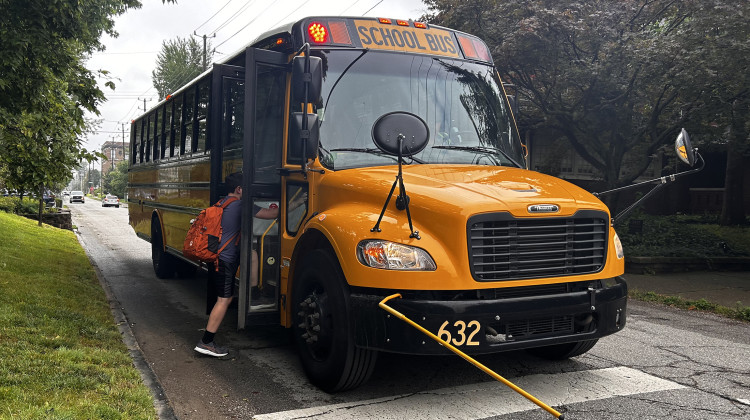
Several people and companies with ties to Indiana Virtual School and Indiana Virtual Pathways Academy have asked a court to throw out claims against them in a state lawsuit to recover $150 million.
Several people and companies with ties to Indiana Virtual School and Indiana Virtual Pathways Academy have asked the court to throw out claims against them in a state lawsuit to recover more than $150 million.
The Hamilton County Superior Court heard arguments Wednesday on multiple motions to dismiss Attorney General Todd Rokita’s claims against people and companies with ties to the online public schools. The defendants argued that the complaint is not specific enough about how they violated state law, that the state must be more specific if it is arguing they committed fraud, and that they should not be personally liable.
Two defendants also asked the court to delay the lawsuit because they say they may be under ongoing criminal investigation.
The judge did not issue a ruling and one is not expected for at least a few weeks.
Both charter schools closed more than two years ago amid allegations that they inflated their enrollment, bilking the state of millions of dollars.
The lawsuit stems from a 2020 State Board of Accounts investigation, which found the public schools reported thousands more students than actually attended classes. As a result, the schools inappropriately collected more than $68 million in state funds.
The schools also paid more than $85 million in public funds to companies that had links to school officials and their family members, the audit found.
Several of the defendants argued that the state was not specific enough about what the defendants had done wrong and the claims should be dismissed or the state should be required to submit a more detailed complaint.
B.J. Brinkerhoff, an attorney for several of the defendants, said “the SBOA statute that the state is proceeding under specifically requires the state to outline what law was broken.”
“Nowhere in the complaint does the state allege what law was broken," he added.
Deputy Attorney General Heather Crockett said because the case resulted from an SBOA investigation, the law at the heart only requires the state to prove “misfeasance, malfeasance and nonfeasance.”
“The definitions of those are broad and they are intentionally broad, because the goal of the legislature is to ensure that the state through the Attorney General's Office is able to recoup as many misappropriated, diverted or unaccounted for funds as possible,” Crockett said.
The two defendants who said they may be under federal criminal investigation argued that the state’s lawsuit should be delayed. One is Percy Clark, former-superintendent for the schools. His attorney wrote in a brief that “while the criminal investigation is ongoing, requiring Dr. Clark to defend this proceeding, and to participate in discovery, would jeopardize his constitutional rights to due process and to avoid self-incrimination.”
Travis Lynch, former-head of information technology for the schools, made a similar argument. In a brief to the court, Lynch’s lawyer wrote that an attorney for Lynch had spoken with an assistant U.S. attorney and “the United States Government does not yet know when it will complete its investigation, of which Mr. Lynch, along with several other individuals that are also named as Defendants in this matter, may be subjects.”
The U.S. Attorney’s Office and the Federal Bureau of Investigation declined to confirm or deny an investigation.
Contact WFYI education reporter Dylan Peers McCoy at dmccoy@wfyi.org. Follow on Twitter: @dylanpmccoy.
Correction: January 5, 2022: An earlier version of the story misidentified the schools involved in the lawsuit. They are Indiana Virtual School and Indiana Virtual Pathways Academy. Indiana Virtual Academy is unaffiliated with the schools.
 DONATE
DONATE





 View More Articles
View More Articles



 Support WFYI. We can't do it without you.
Support WFYI. We can't do it without you.